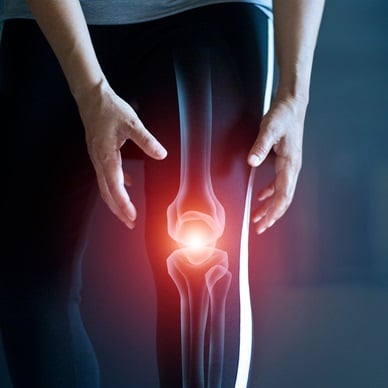How Long Does It Take to Lose 10 Pounds?

How long does it take to lose ten pounds? Well, that depends! There are a lot of “ways” you could lose ten pounds… but if you want to lose that ten pounds in a healthy manner, that narrows it down quite a bit.
What Weight Loss is NOT!
The first, and perhaps most useful, thing to realize is that weight loss is not many things:
- It’s not the same for everyone.
- It’s not the same every time you lose weight.
- It’s not predictable. Sometimes you’ll lose more weight than others, even if you’re doing the same things.
- It’s an uneven journey toward the goal with ups and downs in weight on the scale. Sometimes you won’t even see a change on the scale at all.
- There are many factors affecting weight loss and not all of them have to do with calories and exercise.
- Weight loss doesn’t happen evenly throughout the body.
- You can’t lose weight in just one place. That’s right, there is no “spot reducing,” folks. There is only “spot toning.”
Aim for Realistic and Sustainable Weight Loss
Now that you know what losing weight is not, let’s examine how long it will take you to shed the pounds. Assuming you’re going to go the diet and exercise route, it’s probably a little bit slower of a process than you might like. Plus, you’re likely aiming for permanent weight loss as well.
Afterall, what good is losing those ten pounds if you’re only going to put them on again, possibly over and over again?? If you want to lose weight successfully (and by successfully, it is meant that you intend to keep off the weight), then doing it right is essential.
We know, for example, a pound of fat takes 3,500 calories to burn off. So, a deficit of 500 calories per day is needed. That can be created by eating less, exercising more, or best of all, a combination of both.
So, give yourself time to take it slowly and do it right.
Here’s How to Lose 10 Pounds
First, keep in mind that you want to do this healthfully. That means, according to many studies and health organizations like the Centers for Disease Control and Prevention (CDC), aiming for about one to two pounds of weight loss per week.
And all “weight loss” is not the same! You could easily lose ten pounds (albeit temporarily) by cutting all water and carbs, for example. But, that’s not what you’re going to do, is it?! And you don’t want to lose muscle, which is what will happen if you starve yourself.
No, instead, do these things to help facilitate your healthy weight loss to achieve that one to two pounds of lost body fat per week:
- Figure out how many calories you need to maintain your weight. (There are numerous calorie calculator websites online that you can access.)
- Decide how much time you want to take to lose that weight. For ten pounds, you might want to go for one pound a week or maybe two, especially if you’re willing and able to be rather aggressive in your approach.
- Decide on the caloric deficit you will need each day to achieve that weight-loss goal in the time allotted. For example:
- One pound per week equates to burning an extra 3,500 calories. That would break down to burning/not eating 500 calories a day.
- If you want to go for two pounds a week of weight loss, that’s 7,000 calories, so basically you need to create a deficit of 1,000 calories a day. That’s not easy to achieve. You’ll have to diet and work out hard.
A couple of things to note: typically, weight loss will be faster in the beginning of a program because most of the weight lost is water. However, as you continue on your weight-loss journey, the amount lost on the scale will slow. Not to worry, however, because if you stick with your program, your weight loss will continue steadily over time.
Lastly, muscle mass is heavy and may cause your numbers on the scale to stall, but that doesn’t mean you’re not losing the weight you want to lose (that is, body fat). In fact, the more muscle tissue you can put on, the better.
Top Tips to Lose 10 Pounds Even Faster
Let’s say you’ve been taking the slow and steady route (and you’re going to stay on that path), but you have an event coming up. What else can you do to speed up the weight loss process a little bit?
BREAKING: US Doctor: “Eating This Every Day Can Snap You into Ketosis”
1. Cut your Carbs
This will help you drop (water) weight quickly because for every gram of carbohydrates you eat, your body retains three to four grams of water. Cut the carbs and the water weight will drop off.
2. Increase Your Water Intake
It sounds counterintuitive, but it works. The more water you give your body every day, the less it feels it needs to hold onto water. (It feels it has a plentiful supply and can release it.) Aim for a gallon a day.
3. Get Your Rest
A stressed out body holds onto everything! Keep those cortisol levels low and get your eight hours of sleep a night.
4. Add Protein to Every Meal
Protein will help you retain your muscle even as you lose body fat. Additionally, coupled with resistance training, protein will enable your body to build metabolically active muscle tissue. That alone can help you keep your body fat percentage down.
5. Watch Your Calorie Intake
If you want to lose weight, you’re going to have to take in less calories than your body needs each day to survive. The only way to do that is to monitor what you’re taking in.
Remember, It’s a Lifestyle Change
If you want to lose weight fast, the easiest way is not to put it on in the first place. And, if you stay consistent with a healthy lifestyle and plenty of exercise (both aerobic and resistance training), you’ll probably never be more than a few pounds away from your optimal weight.
By the way, 1.5 pounds of body fat lost per week (in a healthy way) translates to losing 10 pounds (of true fat) every 6 weeks or so. So, keep up the good work and stay the path. It will pay off in a big way for you, 10 pounds at a time!




 US Doctor: "Eating This Every Day Can Snap You Into Ketosis"
US Doctor: "Eating This Every Day Can Snap You Into Ketosis" 3 Key Nutrients to Help Lubricate Your "Tin Man" Joints
3 Key Nutrients to Help Lubricate Your "Tin Man" Joints AVOID Plant-Based Protein Powders (unless...)
AVOID Plant-Based Protein Powders (unless...)

